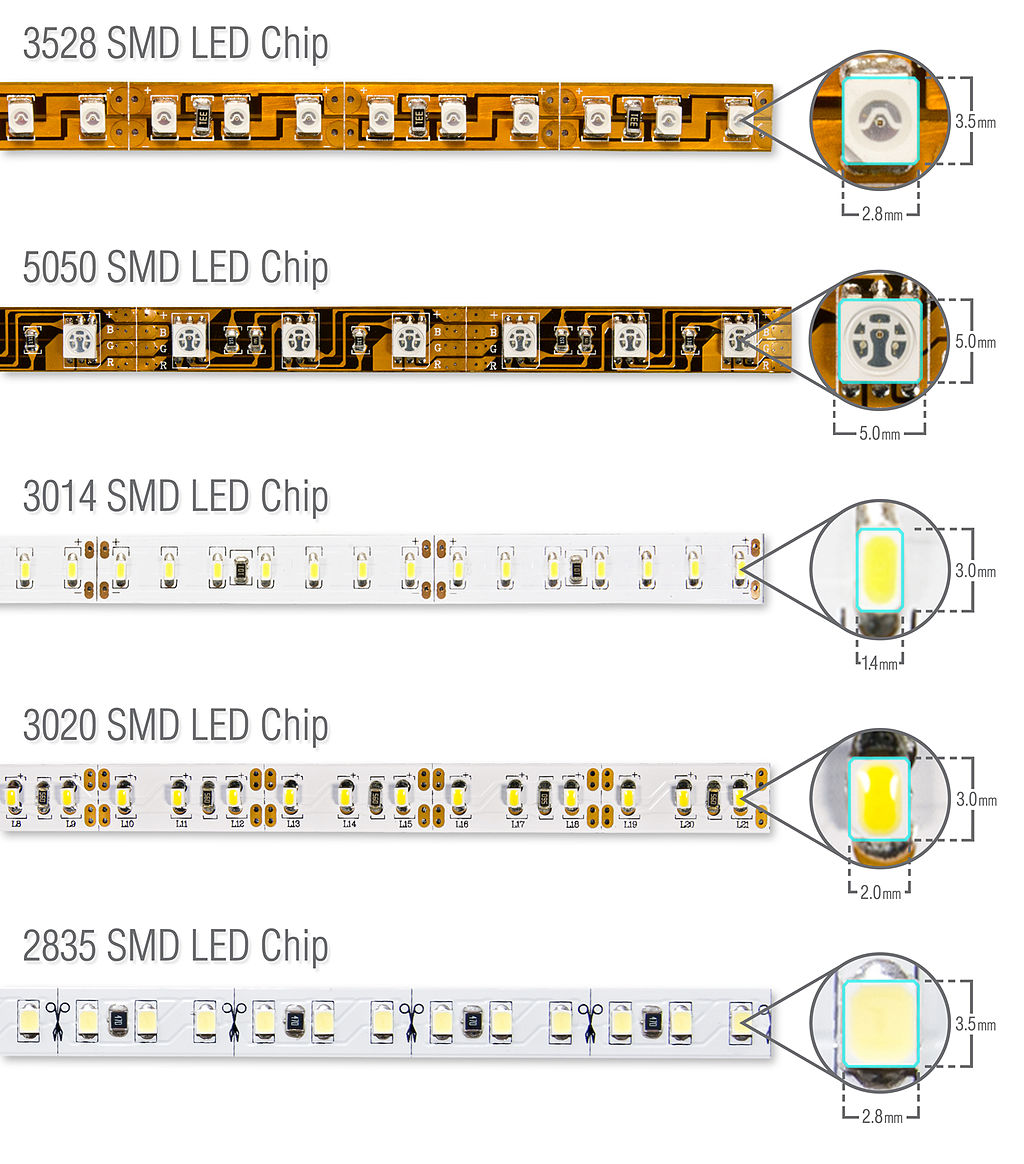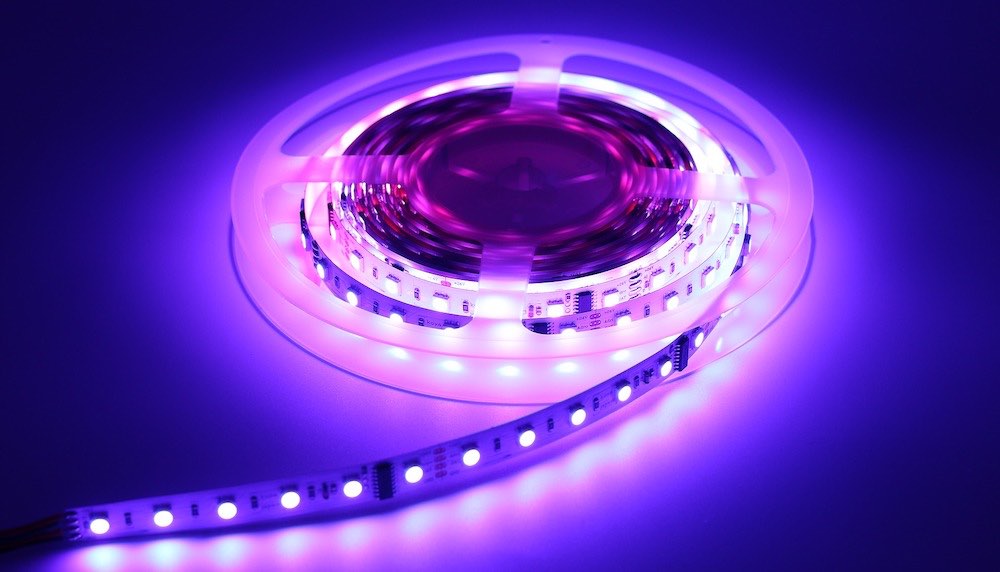There are many different types of LED strips out there. What type do you have? This post gives you hints on how to determine this.
LED types
These are the types of SMD LED components that you might find on LED strips:
- 3528: single color, non-addressable, very low power
- 2835: single color, newer than 3528, allows for higher power
- 5050 (e.g. WS2812B): multi-color (RGB), addressable
- 5630/5730: newer model of the 5050, allows for higher power
- Others: 3014, 4014, 7020, 8020
LED strips
The strips usually operate using 12V or 24V from a power supply (“driver”). Wikipedia has a nice image that summarizes the different types:

The most significant difference is the number of LEDs per meter. Strips can be bought in 30, 60, 74, 96 or even 144 LEDs per meter.
Addressability
Furthermore, the addressability is important. If you have a strip with 4 pins (12V, G, R, B), then you usually have SMD5050 LEDs that cannot be addressed individually. You can just set the color of the whole strip. To control the G, R and B channels, you need to build a small circuit using one N-channel MOSFET (e.g. IRLZ34N, or a MOSFET with a Gate Threshold Voltage of 3.3V max) per channel.
If you have 3 pins (5V, Din, GND), then you most certainly have WS2812 LEDs, that can be addressed individually using a PWM protocol. Libraries such as Neopixel have these features implemented, but you need a level shifter from 3.3V to 5V to control the pins from an Arduino or Raspberry Pi.

